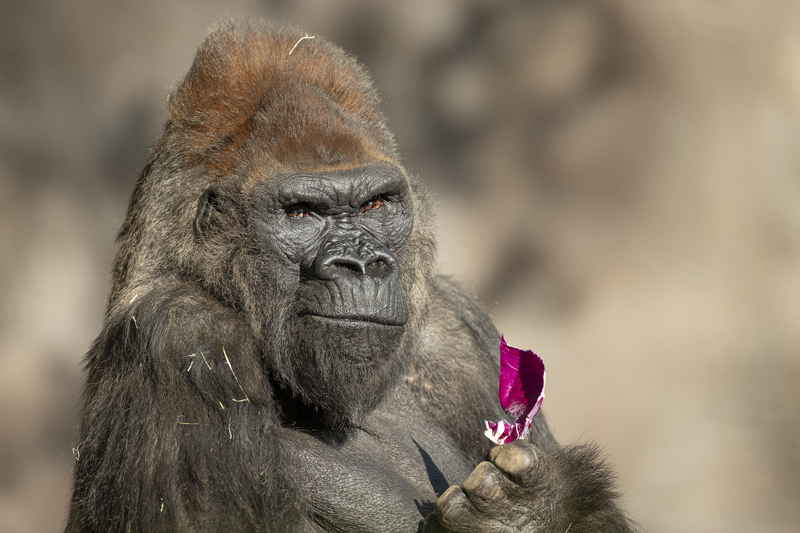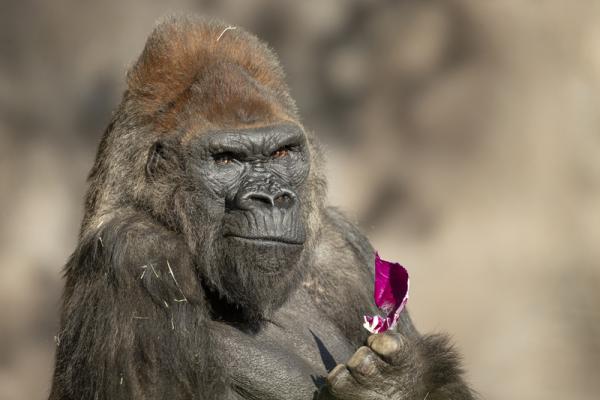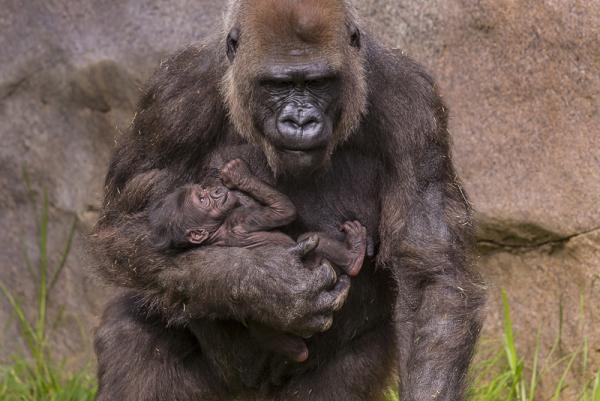KID REPORTERS’ NOTEBOOK
Gorillas Recover From COVID-19

The San Diego Zoo Safari Park recently announced that a gorilla troop there has recovered from COVID-19, the respiratory disease caused by the coronavirus. In January, eight members of the troop tested positive for a highly contagious strain of COVID-19.
Early signs of the virus were observed in a few of the gorillas on January 6, when two of the apes started to cough and experience congestion. Testing confirmed that all eight had been infected. It’s likely that they caught the virus from an asymptomatic staff member at the zoo.
“We’re so grateful for the outpouring of concern and support we’ve received while the troop safely recovered,” Lisa Peterson, executive director of the San Diego Zoo Safari Park, said in a statement.

Native to central Africa, the western lowland gorilla is now endangered.
AN ENDANGERED SPECIES
The apes, which are known as western gorillas, are found in central Africa. They are one of two species: The other is the eastern gorilla, which is much larger. There are about four subspecies. After bonobos and chimpanzees, these great apes are among the closest relatives to humans.
In the past 20 years, the number of gorillas has declined by more than 60%. As a result, they are categorized as critically endangered, making them even more treasured among conservationists.
The gorillas at the safari park are the first non-human primates in the world to test positive for the virus. But several other species of animals also have been diagnosed with COVID-19 in the past year, including lions and tigers at the Bronx Zoo and minks on a Utah farm. Domestic pets, especially cats, are vulnerable to the virus, too.

In January, eight gorillas at the San Diego Zoo Safari Park tested positive for COVID-19.
LEARNING FROM THE GORILLAS
On a recent visit, I spoke with a few people who were happy that the safari park was open again after social distancing measures had forced its closure. “I like taking him to see all of the animals here and how the zoo takes care of them,” said Parinda, who was visiting with her four-year-old son, Ethan.
The diagnosis and effective treatment of the gorillas could expand our understanding of the coronavirus and how it is transmitted. Experts at San Diego Zoo Global, the nonprofit organization that runs the zoo, have joined forces with public health, zoological, and medical groups to treat the animals and document their recovery.
Information about the gorillas’ experience with COVID-19 is now being shared with wildcare professionals at more than 200 zoos worldwide. The findings could be useful in the treatment of coronavirus variants in humans and animals everywhere.
“We’re incredibly thankful for the collaboration across various areas of expertise to ensure the best health for our troop,” Peterson said, “and a deep understanding of the interconnectedness of all living things.”
